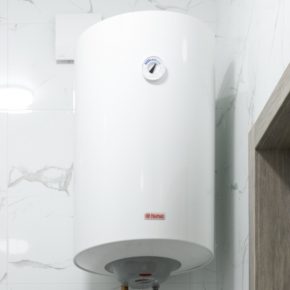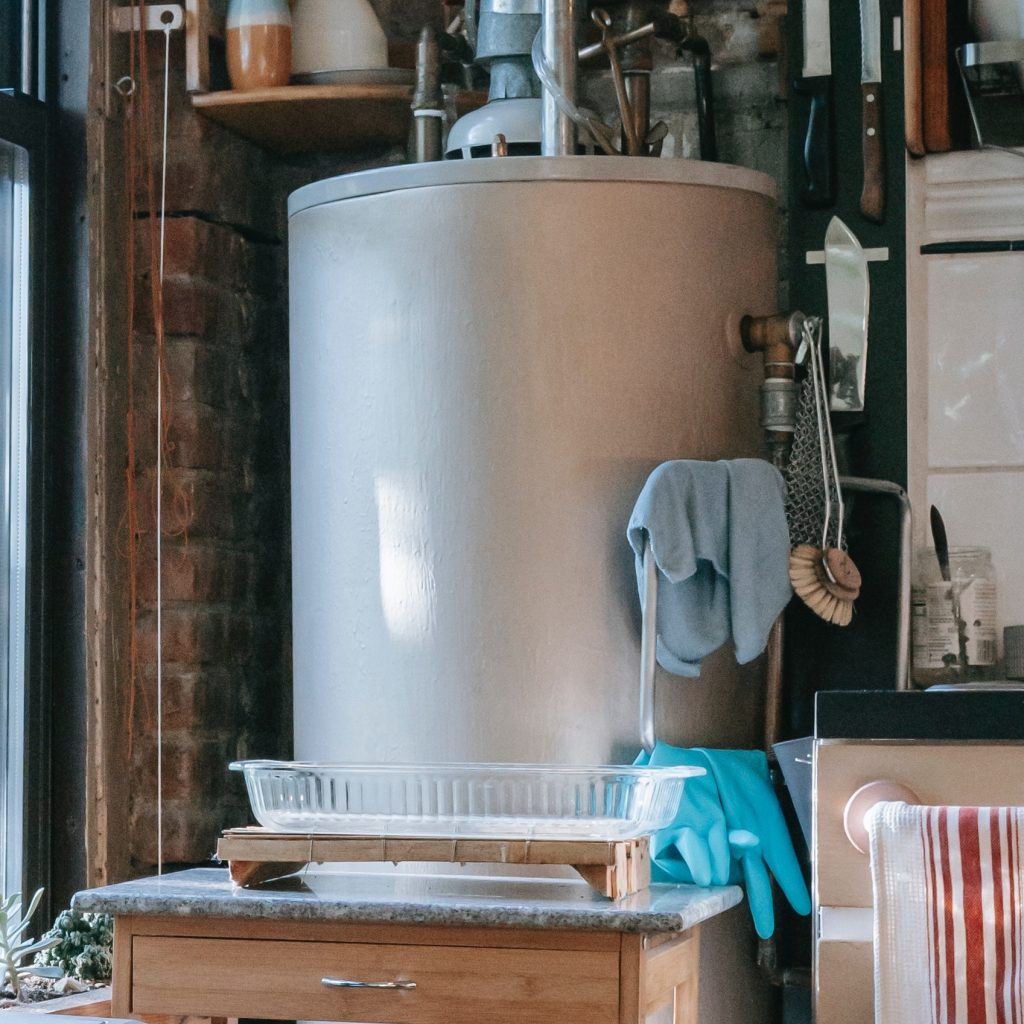
Find Out How to Make Your Boiler More Efficient
We know that keeping your energy costs down is important, especially as the weather gets colder and energy bills continue to increase. One of the ways you can make sure you aren’t paying more than you need to on your energy is to ensure your boiler is running as efficiently as it can. It’s not always easy to know how to do this, so here is some professional advice on what being ‘energy-efficient’ means, what you need to look for and how to keep your boiler running in a cost-effective way…
How Energy Efficient are Boilers?
When it comes to a boiler, ‘energy-efficiency’ refers to the percentage of the energy that is used to provide heat. Most boilers made within the last ten years have an average energy efficiency of 94%. This means that 94% of the energy that the boiler produces is being used in a productive way and goes directly into heating your property. The remaining 6% is either used by the boiler to run or is ‘lost’ within the system.
Boilers that were made more than 20 years ago are usually non-condensing heat-only boilers and are much less energy efficient. This type of boiler wastes some of the heat by hot gases being released from the flue, and this can be up to 40%, making the boiler only 60% efficient.
Condensing boilers capture some of the heat that non-condensing boilers release and use this to heat the water that returns to the boiler from the central heating system. By doing this, less heat from the burner is needed, and so they are much more energy efficient. Any new, modern boiler is going to be high in efficiency and so replacing your old boiler will naturally keep your energy costs down. Central heating tends to make up half of a household’s annual energy costs, and so a new boiler is a great way to stay within budget.
Checking how energy efficient your boiler is in three simple steps:
– Energy efficiency stickers
If your boiler is relatively modern, then there should be a sticker on it somewhere. If you can’t find one, have a look in the information pack that you will have been given when it was installed.
– Find the model number of the boiler
If there is no sticker and you no longer have the information pack, you can still find out how energy efficient your boiler is. Somewhere on your boiler, there will be a brand name and a model name or number. If you are struggling to find it, look underneath the boiler near the pipes or under the front flap where the dials are.
– Look online to find the rating
The pcdb database holds information on pretty much all boilers that have been made. It’s simple to use and will give you a good indication of how efficient your model of boiler is. Make sure you look for the seasonal efficiency rating and then decide whether it’s time to invest in a new, more efficient boiler.

Measuring Boiler Efficiency
If you have been shopping for boilers or bought one recently, you will probably have noticed that the efficiency rating is a letter and not a percentage. These are based on the Europe-wide Energy Related Products (ErP) Directive and were introduced to make efficiency ratings easier to understand. The ratings work out as follows:
A: 90% or higher
B: 86-90%
C: 82-86%
D: 78-82%
E: 74-78%
F: 70-74%
G: below 70%
Increasing the Energy Efficiency of Your Boiler in Six Ways
There are numerous ways of making sure your boiler runs efficiently, and we have put together the top six that you can do easily.
– Invest in a new boiler – the older your boiler, the less energy efficient it will be. Repairing old boilers can also be expensive because parts can be difficult to get. A modern boiler from a leading boiler brand could save you £100-£200 per year in energy bills.
– Service your boiler regularly – keeping your boiler in top condition isn’t something that happens by chance. Servicing your boiler regularly will improve its efficiency and prolong its lifespan.
– Radiators and pipework are important too – boilers don’t work in isolation. Radiators and pipework are an essential part of the system, and if they aren’t working properly, your boiler will need to work harder or could develop a fault. Bleed radiators regularly and use a system cleanse to flush out any dirt and debris.
– The correct pressure for your boiler – most boilers should be working with a pressure of 1 – 1.5. Pressure that is too low means low efficiency and increased costs, whereas pressure that is too high will mean your boiler is more likely to break down.
– Check for lost heat – if your property has gaps in windows, isn’t well insulated or has a draft under doors, it doesn’t matter how efficient your boiler is. This loss of heat will mean that your boiler is unlikely to keep up with the demand, so ensure these are fixed for maximum efficiency.
– Take control of the temperature – do you really need your home to be as warm as you have it? Energy UK estimates that turning the dial down by just 1 degree can reduce your energy bills by up to 10%. A slight change could make a big difference to your boiler and your bank balance. Find the lowest temperature that is comfortable, and make that your default.
Energy bills are something that we can’t avoid, but with a boiler that is running as efficiently as it can, you can be sure that you aren’t paying more than you need to.
If you have any concerns that your boiler isn’t energy efficient, take the steps above to find out how efficient your boiler is. If it is old, then it’s worth investing in a newer model. If it is relatively new but not running efficiently, work through the six steps, and you should see an improvement.
Latest news

4th March 2025
S. Norton Group showcases £20m shredder for metals recycling CEOs
S. Norton Group hosted a tour of its latest £20m investment in state-of-the-art shredder technology for 17 senior leaders in the European metals recycling industry.
Posted in Articles, Building Industry News, Building Products & Structures, Building Services, Case Studies, Facility Management & Building Services, Plant, Equipment and Hire, Posts, Site Preparation, Sustainability & Energy Efficiency, Waste Management & Recycling
28th February 2025
Passivent ventilation solutions are top of the class
Passivent has supplied a combination of Hybrid Plus2 Aircool ventilators and Hybrid Plus Airstract roof ventilation terminals for a new London primary school.
Posted in Air Conditioning, Articles, Building Industry News, Building Products & Structures, Building Services, Case Studies, Ceilings, Facility Management & Building Services, Heating, Ventilation and Air Conditioning - HVAC, Restoration & Refurbishment, Retrofit & Renovation, Roofs, Sustainability & Energy Efficiency, Ventilation, Walls
28th February 2025
Troldtekt: New acoustic liner ensures good acoustics and easy handling
Both a building’s users and its developers have a good reason to get excited about the new Troldtekt Plus 25 panels. This specially developed acoustic panel sets a high standard for both sound absorption and building efficiency.
Posted in Acoustics, Noise & Vibration Control, Articles, Building Industry News, Building Products & Structures, Building Services, Building Systems, Ceilings, Facility Management & Building Services, Floors, Innovations & New Products, Insulation, Interior Design & Construction, Interiors, Restoration & Refurbishment, Retrofit & Renovation, Timber Buildings and Timber Products, Walls
28th February 2025
InstallerSHOW 2025 – Registration is now OPEN!
Building on the success of last year, InstallerSHOW is returning to the NEC from the 24th to the 26th of June…
Posted in Articles, Building Industry Events, Building Industry News, Building Products & Structures, Building Services, Exhibitions and Conferences, Health & Safety, Retrofit & Renovation, Seminars, Sustainability & Energy Efficiency
 Sign up:
Sign up: